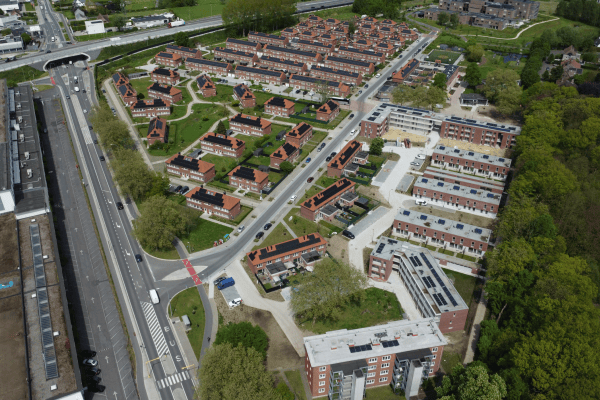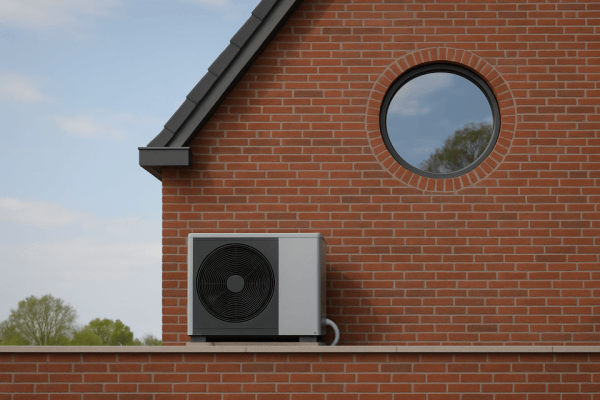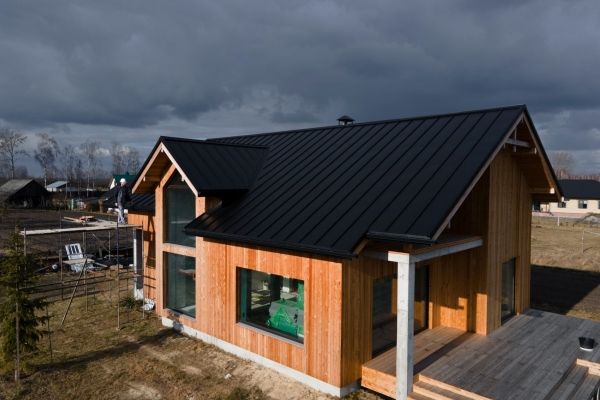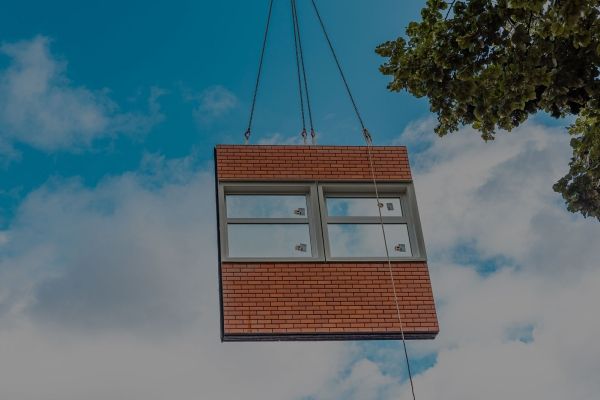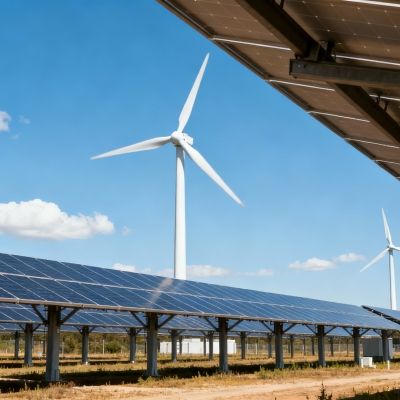Factcheck: How do energy prices affect the cost-effectiveness of heat pumps for existing homes?
Have heat pumps become cost-effecttive in existing homes today? What is the effect of energy prices on the cost-efficiency of heat pumps? And what measures are needed to arrive at a profitable system? In this fact check, our EnergyVille / VITO researchers Glenn Reynders, Maarten De Groote, Dorien Aerts and Pieter Bosmans list all the figures.
Curious about their calculations and what measures our researchers are putting forward? Then be sure to read the full fact check – you can download it at the bottom of this article.

The roll-out of the climate-friendly heat pump is considered an essential part of both the European and the Flemish energy transition. And yet, contradictorily enough, this roll-out in Flanders is currently happening at a snail’s pace – especially in existing household buildings.
Why at a snail’s pace?
At the root of this snail’s pace problem, we find a combination of different factors. One of them is the fact that historically speaking gas and electricity prices have thus far always been too low to act as a large-scale incentive to embark on the implementation of energy-saving measures. Another factor has been the fact that the gas, oil and electricity price ratio has been working to the disadvantage of the heat pump: the Belgian energy tariffication and disproportionately high taxes and levies on electricity in Flanders have been maintaining the emission-intensive status quo for years now, as such hindering the roll-out of this low carbon heating measure in every possible way.
Intrinsic interest on the rise
In the light of the enormous rise in especially gas prices in the course of 2022, intrinsic interest in the heat pump is on the rise, however. That means now is the time to evaluate the Belgian energy tariffication and adapt it to increase the heat pump’s cost-effectiveness, so as to reinforce the intrinsic interest that is currently reigning supreme.
Unmissable momentum for a fact-check
Considering the current momentum, our EnergyVille / VITO researchers Glenn Reynders, Maarten De Groote, Dorien Aerts and Pieter Bosmans embarked on the task of producing a fact-check based on the following key question:
“Are heat pumps in existing household buildings currently cost-effective? And, if not, which measures are in order to put a cost-effective system in place?”
The result is an elaborate article that first of all considers the heat pump’s economic cost-effectiveness from a consumer’s point of view.
After providing a general backdrop, our researchers use a simplified calculation to compare the cost-effectiveness of relying on a heat pump for space heating as an alternative to relying on a condensing boiler. Although the heat pump emerges from that comparison as a viable alternative, a further analysis – taking into consideration the electricity-gas price ratio and its linked return on investment potential – shows us that the installation of a heat pump, within the framework of Flanders’ historical price context, simply wasn’t cost-effective (enough) compared to the classic condensing boiler.
That being said, the enormous rise in gas prices in the course of 2022 has very recently turned the tables in favour of the heat pump’s cost-effectiveness. Keeping a close eye on the affordability of energy, however, persistently high energy prices as we are witnessing them today (d.d. October 2022) can hardly be classified as desirable! So, if we want to safeguard the cost-effectiveness of the heat pump relative to fossil fuel heating alternatives for the long haul, several crucial variables will have to be kept in check. That is why our researchers conclude their fact-check with a set of measures to be taken into account in the policymaking process, so as to accommodate the roll-out of this essential part of both the European and the Flemish energy transition.






